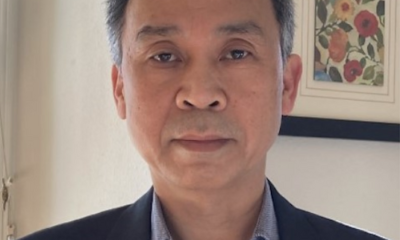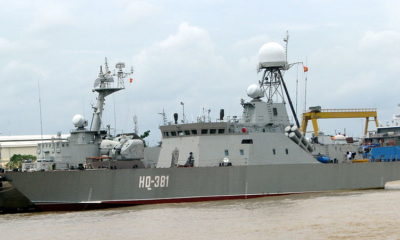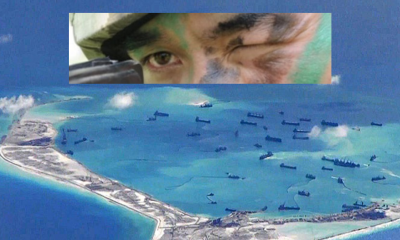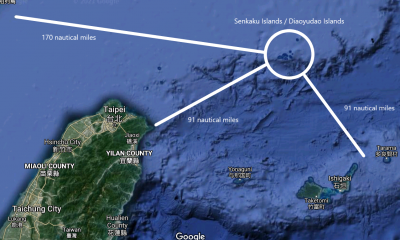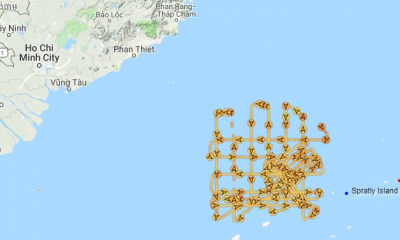Nguyen Luong Hai Khoi
In the forum entitled “Cross-Strait Relations: Current Challenges and Future Development,” on July 2, 2019, at the Heritage Foundation, CSIS senior analyst Bonnie Glaser claimed that China’s Army (PLA) was disappointed with President Xi Jinping’s flexibility in policies toward Taiwan. Considering it one of the Chinese supreme leader’s weak points, PLA’s generals have pressured him and demanded more decisive action.
Arguments that said President Xi Jinping has come under pressure from the Chinese military are often cited from “inside sources in China.” However, it is impossible to confirm these sources. Moreover, we do not rule out the possibility that China intentionally “leaks” those “information” to distract Western strategic analysts.
There are similar arguments over the South China Sea and East China issues.
In an article in Nikkei Asia, Katsuji Nakazawa stated that the Chinese Navy plays a decisive role in developing military bases in the South China Sea, against the PCA’s ruling in 2016. Nakazawa believes that the PLA Navy can put pressure on President Xi Jinping:
“On July 12, an international tribunal, which was set up under the auspices of the Permanent Court of Arbitration in The Hague, handed down a ruling rejecting China’s territorial claims in the South China Sea. The case was brought by the Philippines.
Xi has ignored the humiliating verdict. If he shows any sign of budging, he could face a revolt from within the military – from the Navy and the air force as well as the Army. This would effectively drive the final nail in Xi’s political coffin.” (Nikkei, Why Xi Jinping is fanning the South China Sea crisis, August 5, 2016)
Nakazawa also suggests that China’s militarization of islands in the South China Sea “has been implemented under the navy’s initiative.”
China’s islands reclamation in the South China Sea began in 2013 after the Philippines filed a lawsuit against China with the PCA. Knowing that its claims in the South China Sea are entirely baseless, China foresaw the possibility of failure in this lawsuit, so it declared a Three No’s policy: not participate, accept, and recognize the PCA. At the same time, China began massively building up artificial islands on low-tide elevations in the South China Sea in order to dominate the field and create the ability to maintain long-term disputes.
Therefore, the reclamation of islands in the South China Sea is not merely an initiative by the Chinese Navy. That is the consistent policy of the entire Chinese political system.
An analysis on Reuters also claimed that Beijing’s leaders wanted to react flexibly to the 2016 PCA’s ruling, “has called for a peaceful resolution through talks.” Nevertheless, according to Reuters, four anonymous sources with “close military and leadership ties” revealed to them that several Chinese generals “are pushing for a stronger – potentially armed – response at the United States and its regional allies.” Based on the aggressive claims of these “anonymous sources,” Reuters claims that President Xi Jinping had to “assiduously courted and thoroughly cemented his leadership over the PLA.” As a result, Xi “faces no serious challenges to his command.” (See: ‘Give them a bloody nose’: Xi pressed for stronger South China Sea response, Reuters, July 31, 2016)
The opposition between the supreme leader of the Communist Party of China and the Chinese military leadership is only a Western imagination product.
Let us see what Chang Wanquan 常万全, the former Minister of Defense and State Councilor of the People’s Republic of China, talked to his soldiers in Hangzhou on August 2, 2016, shortly after the PCA’s ruling. The Xinhua News Agency reported the speech.
“Chang Wanquan, the member of the Central Military Commission 中央军委, State Councilor and Minister of National Defense, recently visited Zhejiang to investigate the mobilization for national defense.
He emphasized that it is necessary to thoroughly study and understand the spirit of President Xi’s series of important speeches, the strategic intentions of the Central Committee of the Communist Party and Chairman Xi, fully recognize the threats to national security, especially security threats from the maritime direction, strengthen close cooperation between the military, police, and civilians, and more deeply prepare for mobilization in the maritime direction, give full play to the power of the maritime people’s war.” (See Xinhua: “Chang Wanquan: Move forward and make preparations for mobilization in the maritime direction” 常万全:更加深入扎实做好海上方向动员准备 August 2, 2016. (Original in Chinese, translated by the author.)
Chang Wanquan, who participated in China’s invasion of Vietnam in 1979, “pointed out that Chairman Xi’s important speech on July 1st issued a great call to the whole party to “do not forget the original aspiration and move forward.”
The slogan “do not forget the original aspiration and move forward” (“不忘初心、继续前进) is recently repeated many times by President Xi in the context of the US-Sino new “Cold war.”
The concept “original aspiration” (“chuxin” 初心) in President Xi’s language is quite complex and requires a separate analysis. However, in its senses, there is one that describes the core and original spirit of the communist organization as “democratic centralism” (民主集中制) requires a “united action” and the absolute obedience of each member to the system and the leader. That is why General Chang Wanquan required:
“Not forgetting the original aspiration, we must maintain the core, maintain consistency, continuously strengthen the political awareness and overall situation awareness, resolutely obey the commands of the Party Central Committee, the Central Military Commission, and Chairman Xi.”
The media and analysts outside China should not continue to speculate on “internal conflicts” within the Chinese Communist Party, “rebellions” of the Chinese Army, and even a “challenge” of subordinate leaders over the Chinese Communist Party’s supreme leader, such as rumors about political struggles between President Xi and Premier Li Keqiang.
The communist system operates by doctrine and practice of “democratic centralism” in which the Party is supreme. The Central Military Commission, part of the Party, guarantees this Party’s leadership over the military. The Party quickly identifies any manifestation of disobedience or rebellion in the military and has the power to quell it. Each individual who wants to advance in the Chinese communist system must proficiently practice self-censorship over his/her challenging intentions towards the ultimate power of the regime.
Therefore, it is unlikely to happen that the highest leader Xi Jinping tries to be strong on the South China Sea because he is afraid that China’s Navy would “drive the final nail in the leader’s political coffin.” ( (Nikkei, Why Xi Jinping is fanning the South China Sea crisis, August 5, 2016). China’s expansionism in the South China Sea has been consistent, operated by the Communist Party of China, carefully planned by political and military think tanks, not by the personal will of some navy generals that President Xi Jinping has to “obey.”

 Politics & Economy4 years ago
Politics & Economy4 years ago
 Politics & Economy2 years ago
Politics & Economy2 years ago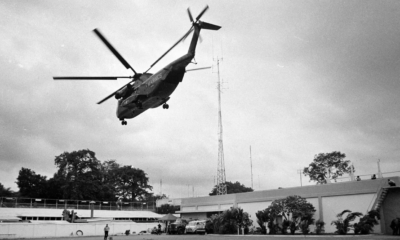
 After 19751 year ago
After 19751 year ago
 ARCHIVES5 years ago
ARCHIVES5 years ago
 Society & Culture5 years ago
Society & Culture5 years ago
 Politics & Economy4 years ago
Politics & Economy4 years ago
 Politics & Economy5 years ago
Politics & Economy5 years ago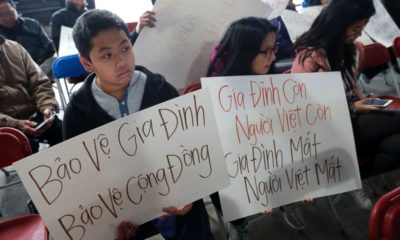
 Vietnamese-America4 years ago
Vietnamese-America4 years ago


